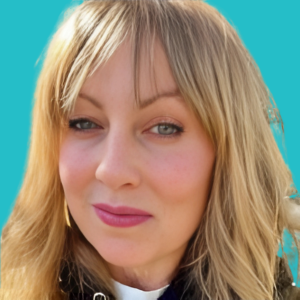Change Clothes Sustainability Enterprise Challenge
ABOUT THE COLLABORATOR
Change Clothes is a Dublin-based community-powered textile hub dedicated to making clothing reuse fun, affordable, and accessible for all. Established in 2022 as a registered not-for-profit company limited by guarantee (CLG), the organisation focuses on preventing clothing waste at its source, addressing the issue locally before it escalates globally. Their initiatives include a permanent clothing swap shop, upcycling and repair workshops, and free repair cafés. They also offer personal development programs and back-to-work traineeships for individuals distanced from the labour market, aiming to create environmental, social, and economic benefits through their circular social enterprise model.
In October 2024, Change Clothes collaborated with TU Dublin’s School of Art and Design and School of Business Technology, Retail, and Supply Chain for a cross-disciplinary project. This partnership aimed to promote sustainable fashion practices and raise awareness about the environmental impact of textile waste.



|
Mary Fleming, |
Jean Noonan, |
Michelle Lalor, Programme Chair, BA Visual Merchandising & Design Display, School of Art & Design |
|---|
THE COLLABORATION
The fashion industry faces increasing scrutiny over its environmental impact, emphasising the need for sustainable practices. To address this, students from TU Dublin’s Visual Merchandising and Digital Marketing programs collaborated with Change Clothes, a social enterprise promoting conscious consumer behaviour. Over six weeks (September–October 2024), students engaged in both online meetings and in-person sessions, culminating in an exhibition at the Grangegorman campus.

This cross-disciplinary project aimed to integrate marketing strategies with visual merchandising techniques to support Change Clothes’ mission. Digital Marketing students conducted research aligned with UN Sustainable Development Goals (SDGs), particularly Responsible Consumption (SDG 12) and Climate Action (SDG 13), developing digital campaigns and awareness strategies. Visual Merchandising students designed physical installations using sustainable materials to create impactful brand storytelling.
Through teamwork, students gained hands-on experience in developing holistic sustainability solutions. Their research posters and visual displays showcased innovative approaches, from data-driven social media campaigns to immersive merchandising experiences.
Mary Fleming, the founder of Change Clothes provided feedback, highlighting the creativity and real-world applicability of their work. This collaboration emphasises the value of cross-disciplinary education in addressing sustainability challenges while fostering meaningful partnerships between academia and social enterprises.

IMPACT AND BENEFITS
This collaboration between TU Dublin and Change Clothes delivered valuable outcomes for all stakeholders. The students gained practical experience in sustainable fashion, digital marketing, and visual merchandising. They developed research, strategy, and design skills while enhancing teamwork, problem-solving, and professional confidence.
The project encouraged active student participation, reflection, and problem-solving in real-world contexts. Collaboration between faculty members enhanced cross-discipline teaching methods, leading to more dynamic and impactful learning experiences. Change Clothes benefited from innovative marketing strategies and sustainable visual merchandising solutions. The students’ research-driven insights provided practical approaches to engaging eco-conscious consumers and expanding the organisation’s reach.
The wider community gained increased awareness of sustainable fashion through student-led campaigns and the final exhibition. The project’s alignment with UN Sustainable Development Goals reinforced responsible consumption. This collaboration demonstrated the effectiveness of cross-disciplinary education in addressing real-world sustainability challenges. By combining marketing, design, and sustainability principles, students developed holistic solutions with practical applications. The partnership strengthened industry-academic connections, and equipped students with future-ready skills.
COLLABORATE WITH ENTERPRISE FACULTY
